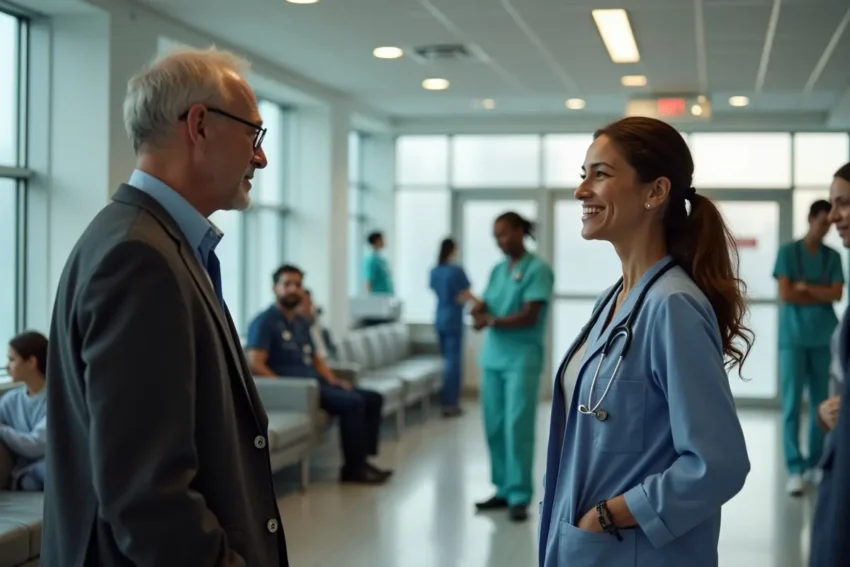Understanding Psychiatric Emergencies and Where to Find Help

Psychiatric emergencies are critical situations that require immediate attention and intervention, as they can pose significant risks to individuals and those around them. These emergencies can manifest in various forms, including severe anxiety attacks, suicidal behavior, psychotic episodes, and substance abuse crises.
Understanding the signs and symptoms of a psychiatric emergency is crucial for timely and effective response. This article aims to provide a comprehensive overview of what constitutes a psychiatric emergency, how to recognize it, steps to take when faced with one, and where to find professional help and resources.
By equipping ourselves with knowledge, we can better support those in distress and navigate these challenging situations with compassion and effectiveness.
Contents
Definition of Psychiatric Emergencies
What Constitutes a Psychiatric Emergency?
A psychiatric emergency is like a mental health fire alarm—it’s when someone’s thoughts or actions become so intense or dangerous that immediate intervention is necessary. This could range from severe manic episodes to someone contemplating self-harm. Essentially, if someone’s mental state poses an imminent risk to themselves or others, it’s time to dial for help faster than you can say “emergency psychiatric services.”
Distinction Between Psychiatric and Medical Emergencies
While both psychiatric and medical emergencies demand urgent attention, they differ in nature. Medical emergencies typically involve physical health crises—think heart attacks or broken bones—while psychiatric emergencies involve mental health issues like suicidal thoughts or severe psychosis. If someone is clutching their chest, you’re in the ER lane; if they’re detached from reality, it’s a different kind of urgency. Remember, both require immediate action, just of different flavors.
Common Types of Psychiatric Emergencies
Suicidal Ideation and Attempts
When someone expresses thoughts about self-harm or suicide, it’s crucial to take them seriously—no, it’s not just “a phase.” This can manifest as verbal expressions, social withdrawal, or even giving away possessions. If you see these signs, it’s a clear red flag, and professional help is essential.
Severe Anxiety and Panic Attacks
Severe anxiety can be so intense that it feels like your heart is auditioning for a drum solo while you struggle to catch your breath. Panic attacks can strike suddenly and are often accompanied by symptoms like rapid heartbeat, dizziness, and overwhelming dread. This is not just a bad hair day, folks; it’s a crisis that needs addressing.
Psychotic Episodes
Ah, the classic ‘what’s real and what’s not’ dilemma. Psychotic episodes may include hallucinations (seeing things that aren’t there) or delusions (believing things that are wildly untrue). If someone is experiencing these, they might be at risk of harming themselves or others. Immediate intervention is crucial, preferably by trained professionals.
Substance Abuse Crises
Substance abuse can lead to a cocktail of chaos—both literally and figuratively. Whether it’s an overdose or withdrawal symptoms, crises can arise that require urgent attention. This may present as extreme agitation, confusion, or uncontrollable behavior. It’s a storm that needs a lifeline, and fast.
Recognizing the Signs and Symptoms
Behavioral Changes to Watch For
Keep an eye out for erratic changes in behavior that tip you off to possible distress. This could include sudden withdrawal from social circles, drastic mood swings, or risky behaviors. If someone is acting like a character from a horror movie, it might be time to intervene.
Physical Symptoms Associated with Psychiatric Emergencies
Physical symptoms can range from sweating and trembling to a racing heartbeat. Sometimes, the mind and body really work together to throw a tantrum. If there’s noticeable agitation or unusual physical responses, it may signal that help is needed.
Emotional Indicators of Distress
Emotions can often be our best indicators. If someone is exhibiting overwhelming sadness, anger, or anxiety that seems out of proportion or prolonged, take note. If they’re feeling it, chances are help is needed, pronto.
Immediate Steps to Take in a Crisis
Assessing the Situation
First things first: take a breath (it’s okay, I’ll wait). Assess what’s happening. Is the situation safe? Is anyone in immediate danger? Observe without judgment and determine if professional help is necessary. Remember, you’re not Sherlock Holmes, but a calm, clear mind goes a long way.
Ensuring Safety for All Involved
Safety is paramount. Make sure everyone, including yourself, is out of harm’s way. If someone is acting violently, it may be best to keep your distance and call for professional help rather than play hero. You can be an ally without putting yourself in jeopardy.
How to Communicate Effectively
When speaking with someone in crisis, stay calm and listen more than you talk. Use a gentle tone, avoid judgment, and validate their feelings. This is their moment to vent or express their pain, not a debate competition, so let them feel heard. Empathy is your best communicator here.
Where to Find Professional Help
Emergency Services and Crisis Hotlines
When a psychiatric emergency strikes, your first line of defense is often just a phone call away. Emergency services, like 911 in the US, can dispatch professionals who are trained to handle crises. But if you’re not quite at the “call the cavalry” level yet, crisis hotlines can be a lifesaver.
These phone lines are staffed by compassionate individuals who understand what you’re going through and can provide immediate support and guidance. Most hotlines are available 24/7, so you can reach out any time, day or night—because let’s be honest, crises don’t adhere to a business schedule.
Local Mental Health Facilities
Local mental health facilities are like a friendly neighborhood superhero for those in need. They offer a range of services, from emergency care to outpatient therapy, designed to help individuals during tough times.
Whether you’re looking for immediate assessment or ongoing treatment, these facilities are staffed with professionals who are ready to provide support. To find one in your area, a quick internet search or a call to your primary care provider can point you in the right direction. Remember, it’s okay to reach out; we all need help sometimes!
Involvement of Family Physicians and Therapists
Your family physician or therapist can be instrumental in navigating psychiatric emergencies. They often have a deep understanding of your medical history and can provide referrals to specialists or emergency services when needed.
If you find yourself in distress, don’t hesitate to schedule an appointment or give them a call—they’re there to help, not just to hand out prescriptions like candy at Halloween. Building a strong relationship with these professionals ensures you have a support system ready to swoop in, cape optional.
Preventive Measures and Long-Term Management
Developing a Crisis Plan
Having a crisis plan is like having an umbrella on a cloudy day—better to have it and not need it than to need it and be soaked. A crisis plan outlines steps to take in case of a mental health emergency. This might include emergency contacts, coping strategies, and a list of preferred treatment options. Involving trusted friends or family in the creation of this plan ensures everyone knows their role, so when a storm hits, you’re not left scrambling for cover.
Therapeutic Options and Treatments
Therapy isn’t a one-size-fits-all solution; it’s more like a buffet where you can choose what works best for you. Options abound, from cognitive-behavioral therapy (CBT) to medication management and art therapy. Regular check-ins with a mental health professional can help you navigate these options and make adjustments as needed. The goal is to find the right combination that keeps you thriving instead of just surviving.
Maintaining Mental Health and Well-being
Like a plant needs water to grow, your mental health needs regular care to flourish. Make self-care a priority—whether that means indulging in your favorite hobbies, practicing mindfulness, or simply getting enough sleep. Building a routine that incorporates physical activity, healthy eating, and social connections can help maintain your mental well-being. After all, a healthy mind is your best friend when facing life’s challenges.
The Role of Family and Friends in Crisis Situations
How to Provide Support
If a loved one finds themselves in a mental health crisis, your role is crucial. Offering a listening ear, a shoulder to cry on, or a warm meal can make all the difference. Encourage them to share their feelings without judgment and remind them it’s perfectly okay not to be okay. Just being present can provide immense comfort and let them know they don’t have to navigate their turmoil alone.
Recognizing When to Seek Help
Not every situation calls for an emergency room visit, but it’s crucial to know when it’s time to pull the trigger. Signs that professional help is needed include drastic mood changes, withdrawal from loved ones, or thoughts of self-harm. If you notice these red flags, don’t hesitate—reach out for support. It’s much better to be proactive than to wait until the situation escalates.
Encouraging Open Communication
Open communication is the golden ticket in any relationship, especially in times of crisis. Normalize conversations about mental health within your family and friend circles. Create a safe environment where your loved ones feel comfortable discussing their struggles without fear of stigma.
A little encouragement can go a long way in breaking down barriers and fostering a supportive atmosphere that makes it easier to seek help when needed.In conclusion, understanding psychiatric emergencies is vital for ensuring the safety and well-being of individuals in crisis.
By recognizing the signs, knowing how to respond, and seeking appropriate help, we can play a crucial role in supporting those in need. Remember that reaching out for assistance is not only important for the individual experiencing the crisis but also beneficial for their loved ones. Together, we can foster a more compassionate and informed approach to mental health emergencies.



